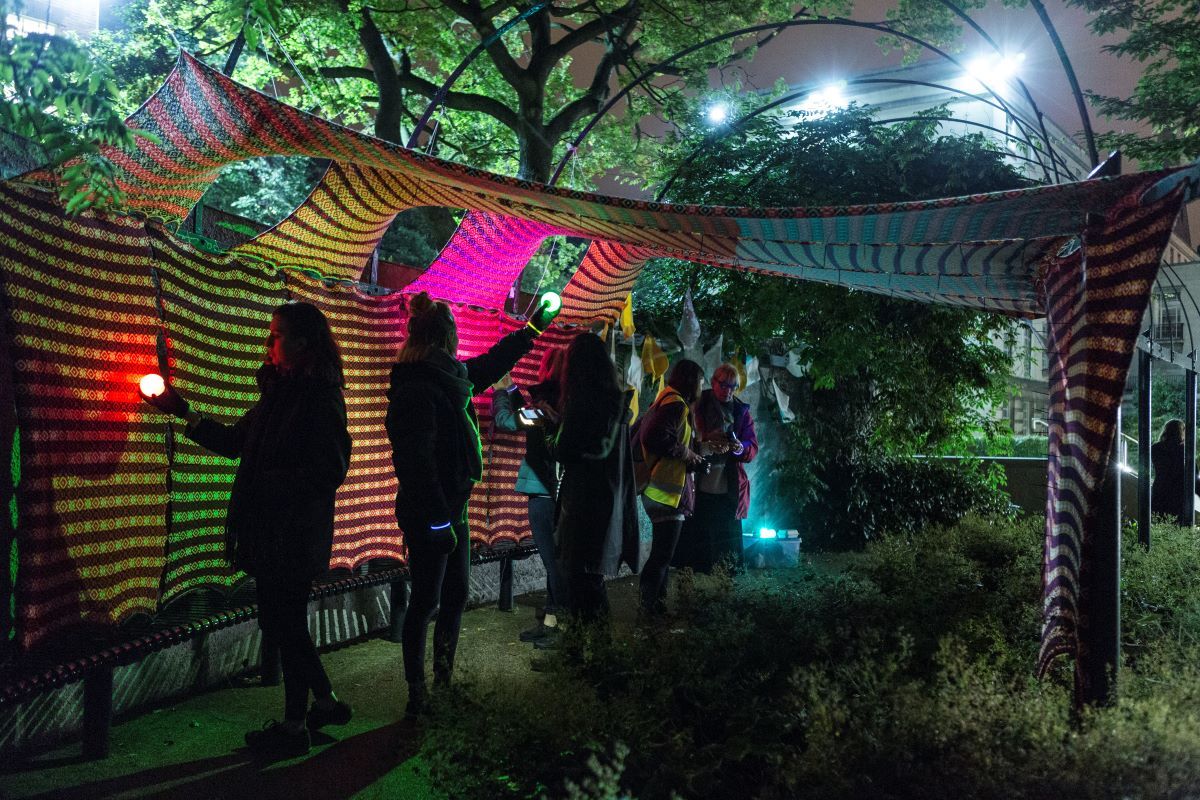
Exploring Leeds Light Night
Joining the dots for better cultural policy
As Anna Kime begins working with West Yorkshire Combined Authority, she explores how integrated data and evaluation can aid decision making and ensure the UK’s cultural and creative sectors continue to be world-leading.
It's an exciting time for culture in West Yorkshire. Following Leeds 2023 and Kirklees Year of Music, Wakefield and Calderdale are both hosting year-long cultural celebrations in 2024. Meanwhile, momentum is also building towards Bradford UK City of Culture 2025.
These ‘Years of Culture’ promise to bolster the region's world-class reputation for culture and creativity, drive economic growth and inspire people of all ages. But, post-pandemic and amid a cost-of-living crisis, this all comes when many cultural organisations and local authorities are faced with shrinking capacity and resources.
Research shows arts and culture can help animate, shape and regenerate place in a people-centred way and can contribute to health and wellbeing. But we need a better understanding of how this value is created and be clear-sighted about what works and what needs to change to ensure resources are well targeted.
Since joining the Centre for Cultural Value (the Centre) nearly a year ago, I've worked alongside local and regional decision makers who share the Centre's view that high-quality data and robust evaluation are vital in this work.
These tools and knowledge can inform the delivery of cultural programmes and build a sector that can adapt to change and weather future crises.
The challenges of harnessing data
Yet, the reality of creating a smarter, more joined-up approach to collecting and analysing data is no small task.
The findings of the Centre's 2021 national research project Making Data Work concluded cultural datasets are currently poorly aligned and not always fit for purpose. As such, the sector struggles to evidence the true value and impact of what it does.
These difficulties with data include a lack of shared standards, significant gaps and inconsistencies in collection approaches, and skills gaps in evaluation and analysis practice. All require strategic leadership and long-term, shared solutions.
What can we learn from West Yorkshire's approach?
The Centre stands at the intersection of this ever-evolving cultural evaluation and policymaking landscape. By spending a day a week embedded in the Culture, Heritage and Sport team at West Yorkshire Combined Authority (WYCA) over the next six months, I hope to play a role in navigating this intricate terrain.
The collaborative efforts of Mayor Tracy Brabin and the five district leaders have set the stage for a rich tapestry of regional activities. This shared leadership approach to West Yorkshire's 'Years of Culture' also provides a unique opportunity to unify approaches to evaluation and the collection of cultural data.
In developing our partnership with WYCA, the Centre will be part of a new cultural data and evaluation working group. This group will bring together representatives from Bradford, Calderdale, Kirklees, Wakefield and Leeds councils, Bradford 2025 and Leeds 2023 to agree shared evaluation and data collection practices across the region.
 Concert at Piece Hall, Halifax, Calderdale. Photo: Ellis Robinson
Concert at Piece Hall, Halifax, Calderdale. Photo: Ellis Robinson
The Centre’s work has helped underpin this collective approach, with our co-created Evaluation Principles providing a shared language and understanding about connected and beneficial ways to carry out evaluation in the sector. Meanwhile, our mixed-methods framework for evaluation provides cultural organisations with a helpful guide to capturing the full impact of their work.
These resources have formed the basis of the evaluation strategies for both Bradford 2025 and Leeds 2023, and we are currently drawing together learning from the UK Cities of Culture programmes, which will be available this spring.
Now, this rare opportunity to work together, share insight and further unify approaches will allow us to understand how best to achieve durable data. No doubt, there will be plenty of challenges and learning on the way. But one legacy of West Yorkshire's Years of Culture may well be what they teach us about developing a regional data and evaluation strategy, which can help us understand how to fund place-based cultural activity ethically and effectively.
Smarter data, better policy, a stronger sector
A crucial next step will be sharing the learning from West Yorkshire’s collaborative approach. At the Centre, we will continue to convene conversations with policymakers and the wider sector and to share insights and highlight best practice.
Joining the dots of cultural data across the UK may not be simple – or be the type of endeavour that grabs headlines. But – as is often the case – hard, careful work can bring real transformation.
In harnessing the power of smarter data, we can tell richer, nuanced, evidenced stories about the value of arts and culture. This, in turn, will help policymakers make informed decisions to empower the cultural sector and enrich the places and communities in which we live.
Anna Kime is the Policy Officer at the Centre for Cultural Value.
![]() culturalvalue.org.uk
culturalvalue.org.uk
![]() @valuingculture
@valuingculture
Keen to learn more about embedding the Evaluation Principles in your work? Sign up for the Centre’s free-to-access online course, Evaluation for Arts, Culture and Heritage: Principles and Practice.
This article, sponsored and contributed by the Centre for Cultural Value, is part of a series supporting an evidence-based approach to examining the impacts of arts, culture and heritage on people and society.
Join the Discussion
You must be logged in to post a comment.